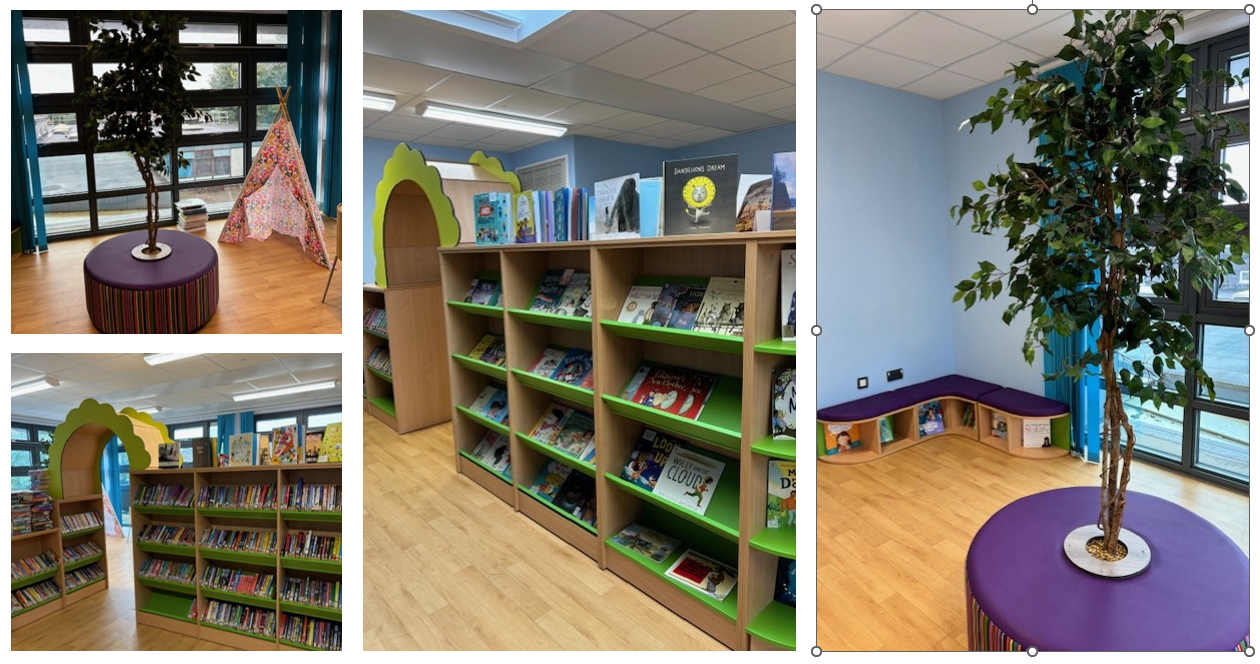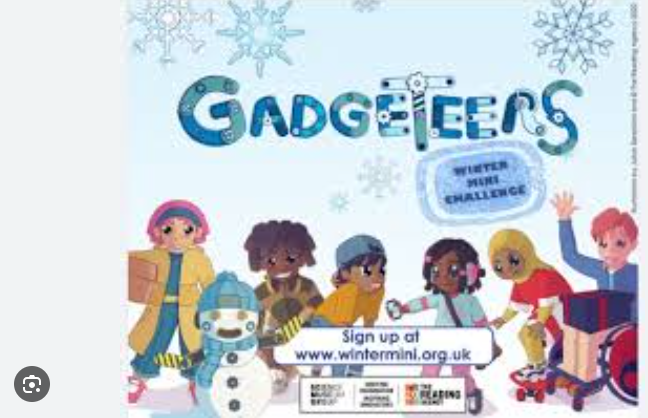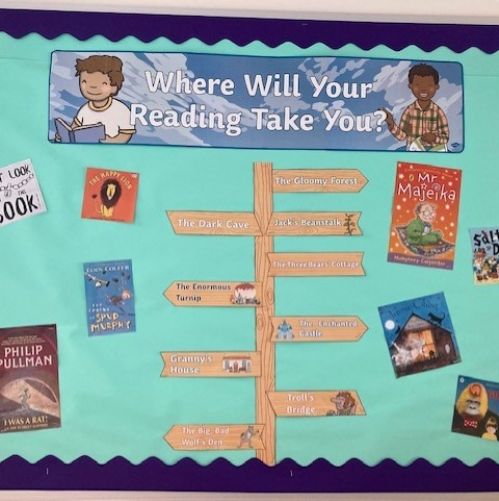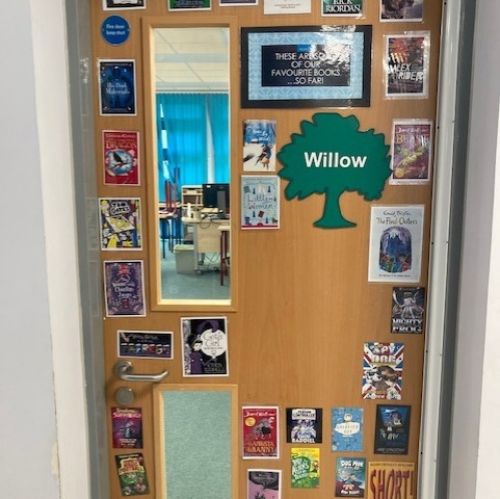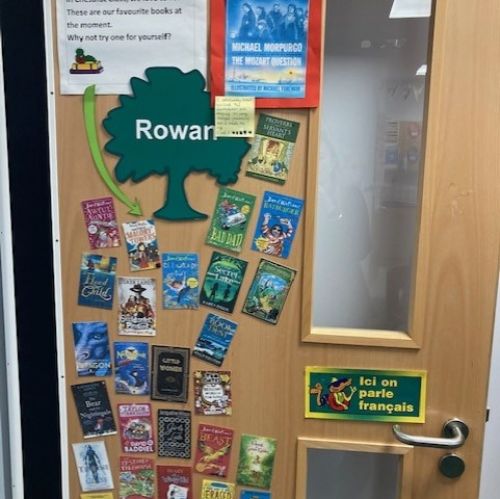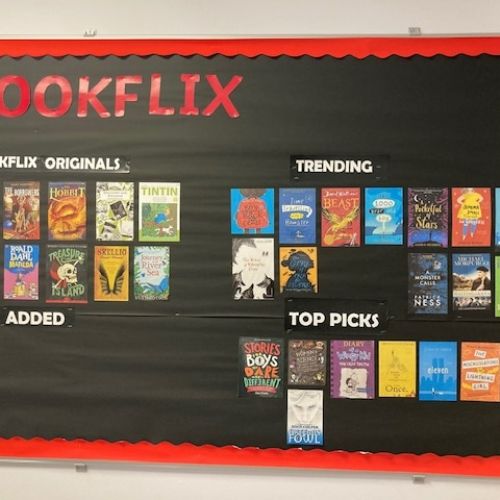English
Intent
Our curriculum is aligned with the National Curriculum for English 2014 and is designed to develop children’s love of reading, writing, discussion and performance. Our aim is for William Ransom School to be a reading school full of avid and enthusiastic readers who care about books and believe that books can be a gateway to knowledge. Our English curriculum aims to help our children learn to:
- read easily, fluently and with good understanding
- develop the habit of reading widely and often, for both pleasure and information
- acquire a wide vocabulary, an understanding of grammar and knowledge of linguistic conventions for reading, writing and spoken language
- appreciate our rich and varied literary heritage
- appreciate a range of diverse characters in books and understand the importance of representation
- write clearly, accurately and coherently, adapting their language and style in and for a range of contexts, purposes and audiences
- use discussion in order to learn; they should be able to elaborate and explain clearly their understanding and ideas
- be competent in the arts of speaking and listening, making formal presentations, demonstrating to others and participating in debate.
We provide children with a literacy-rich environment, high quality texts and inspiring learning opportunities such as author visits, exciting whole school writing days, creating books collaboratively to share with other classes and much more. We have also introduced whole school reading time from 3.10-3.20pm every day giving children the opportunity to sit and enjoy listening to a story together.
Implementation
English in EYFS
Following the EYFS framework, the children in our Reception classes begin to develop early reading skills. They are taught Phonics every day using the Bug Club Phonics scheme. The children progress through Phases 2, 3 and 4 and also use the Bug Club ebooks to enhance their reading skills. Time to hear the children read 1:1 is built into the class timetable and every child takes part in Guided Reading once a week. Reading books are changed twice a week and parents are encouraged to listen to their child read every night, consolidating the learning that takes place in the classroom. There are Library books for the children to take home and share with their parents. Key words and phonemes are also sent home for the children to practise. Language skills are a key focus in Reception and the children are given plenty of opportunities during Talk Time to articulate what they would like to learn during the Discover and Do sessions. The children are also encouraged to take part in Show and Tell regularly.
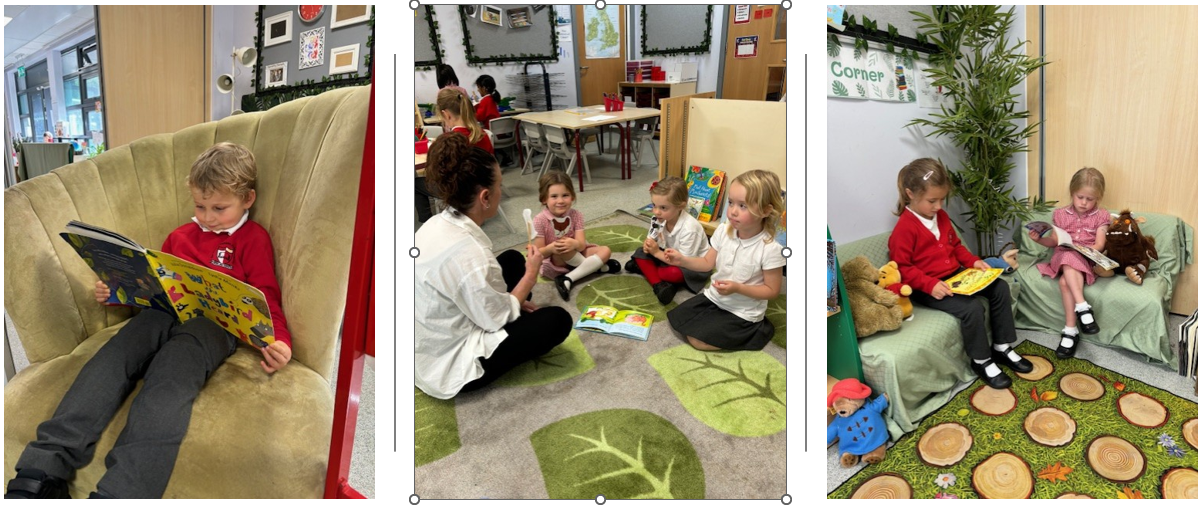
How we teach children to read
In EYFS and Keystage 1 we teach phonics using Bug Club Phonics, which we started in September 2021. The Reception classes cover Phases 2, 3 and 4. Phase 5 is completed in Year 1 in preparation for the Phonics Screening Check. Bug Club Phonics provides us with the flexibility to decide whether Phase 6 is covered in Year 1 or Year 2 depending on the cohort of children. We run a variety of phonics interventions for any child who may need it, including children in Key Stage 2. Teachers use phonics assessment sheets regularly throughout the academic year to track phonics progression and to ensure that children are acquiring the skills and ability to use phonics to read.
Every child is given a book from our reading scheme to read at home with their parents. We strongly encourage the children to read every night and this is recorded in their Reading Records. The Reading Records contain guidance for the parents on how best to support their child’s reading at home. There is also a list of suggested questions for the parents to deepen their child’s understanding. We monitor how often the children are reading at home and we contact parents, where necessary, to provide support. Our reading scheme includes books that specifically teach phonics and these have been aligned with the Bug Club Phonics programme. In addition to this, Year 1 and Year 2 children are also set weekly ebooks on Bug Club that match the specific phoneme they have been taught in class that week.
We provide many opportunities to read in school including 1:1 with teachers and TAs, in Guided Reading groups and in our English lessons. We also encourage volunteers into school to enjoy books with the children. Every classroom has its own bookshelf with a variety of texts for the children to enjoy looking at. These books are refreshed regularly and the children are actively encouraged to explore genres they may not have seen before. In Key Stage 1, every class has Library books that the children are allowed to take home and share with their families. We encourage the children to change these books weekly.
In Key Stage 2, each class has its own bookcase so that children are able to choose books from within their classroom. These collections are regularly updated to include books that have been read and discussed in lessons and include fiction, non-fiction and poetry. First News issues are also included on the bookcase so that all children have access to topical issues, which often inspire whole class debate.
From Year 3 onwards, children continue to practise phonics in English lessons and in phonics intervention groups. Children continue to develop their reading skills and read through our book banded reading scheme; these books are read at school during designated reading time in class, at home, in 1:1 reading with teachers and teaching assistants and small group guided reading sessions. Once teachers are confident that children have developed adequate fluency and understanding, children start to choose books from our Hedgerow selection of books in the Year 3 corridor, then onto the Key Stage 2 reading scheme in the Library.
Initially, free readers are guided towards books in the Key Stage 2 reading scheme, which suit their developing reading skills. Books are organised into colour bands (levels of difficulty) to help children find books they can access and understand. Teachers guide children towards black, silver or gold labelled books according to the level of difficulty they feel appropriate. There is also a new but growing range of Dyslexia-friendly (high interest, low reading age) books, which are labelled with rainbow stickers.
Children take their reading books home, are encouraged to read regularly with their families and record this in their reading records. The reading records contain a range of ideas to help parents develop their children’s reading skills. It also gives teachers another way of monitoring how often children are reading and enables them to offer feedback or advice to parents as to particular skills that may need practice.
Our Library contains a range of fiction and non fiction texts. Older children are able to peruse the books that are available in the Library at home, reserve books and write book reviews for their peers through our online cataloguing system. They are developing digital literacy and independence using the software to use the search engine and check books in and out each time they borrow.
We assess reading using both the Herts for Learning TAFs during 1:1 reading sessions with teachers and teaching assistants and guided reading sessions. Children who are fluent readers also undertake termly reading assessments. Progress is tracked throughout the school by the Senior Leadership Team.
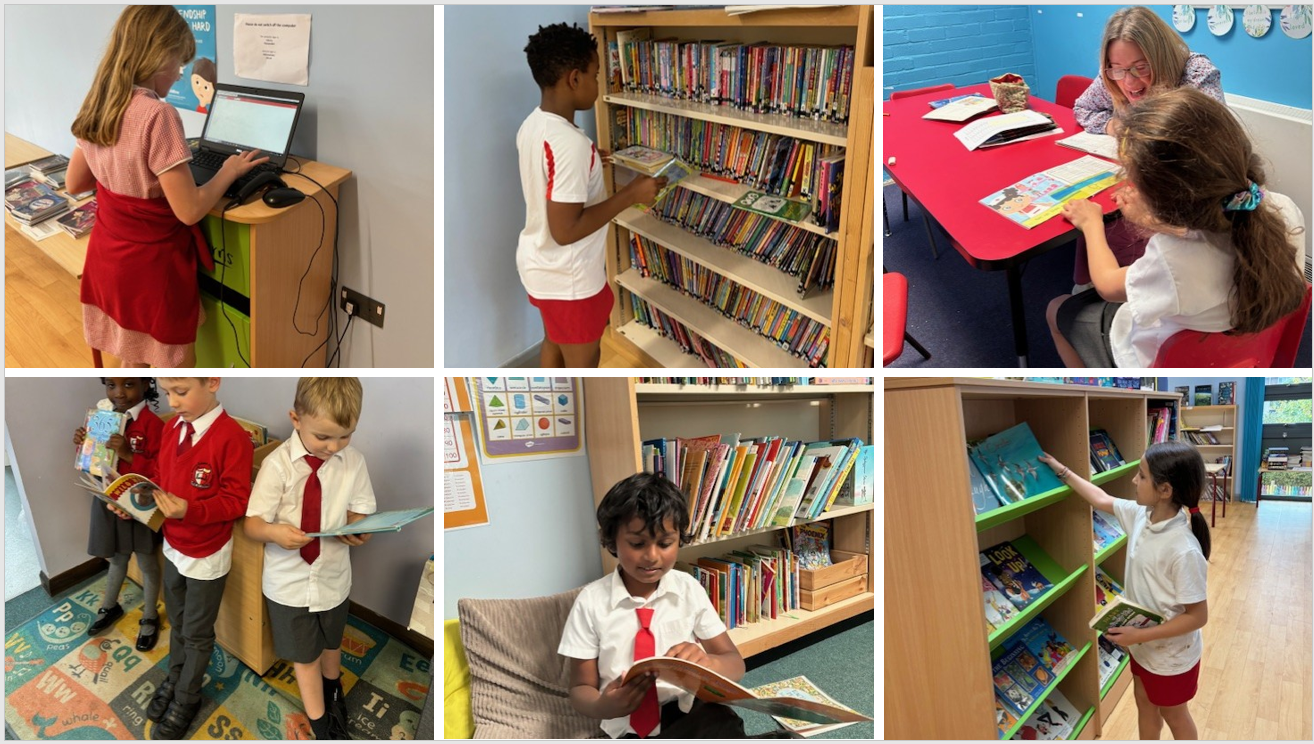
How we encourage a love of reading
Teachers use real life experiences and/or rich texts to inspire pupils; our priority is to focus on the enjoyment of reading but, in school, we celebrate all of the many life skills, opportunities and knowledge that reading gives us all. Our children and teachers know that those who read a wide variety of high quality texts are much better placed to write in an engaging and exciting way.
Over the last few years, we have taken part in several whole school projects linked to a love of reading.
World Book Days are celebrated annually in school; we have Key Stage book quizzes, assemblies, author visits and lessons designed to celebrate all kinds of books and authors.
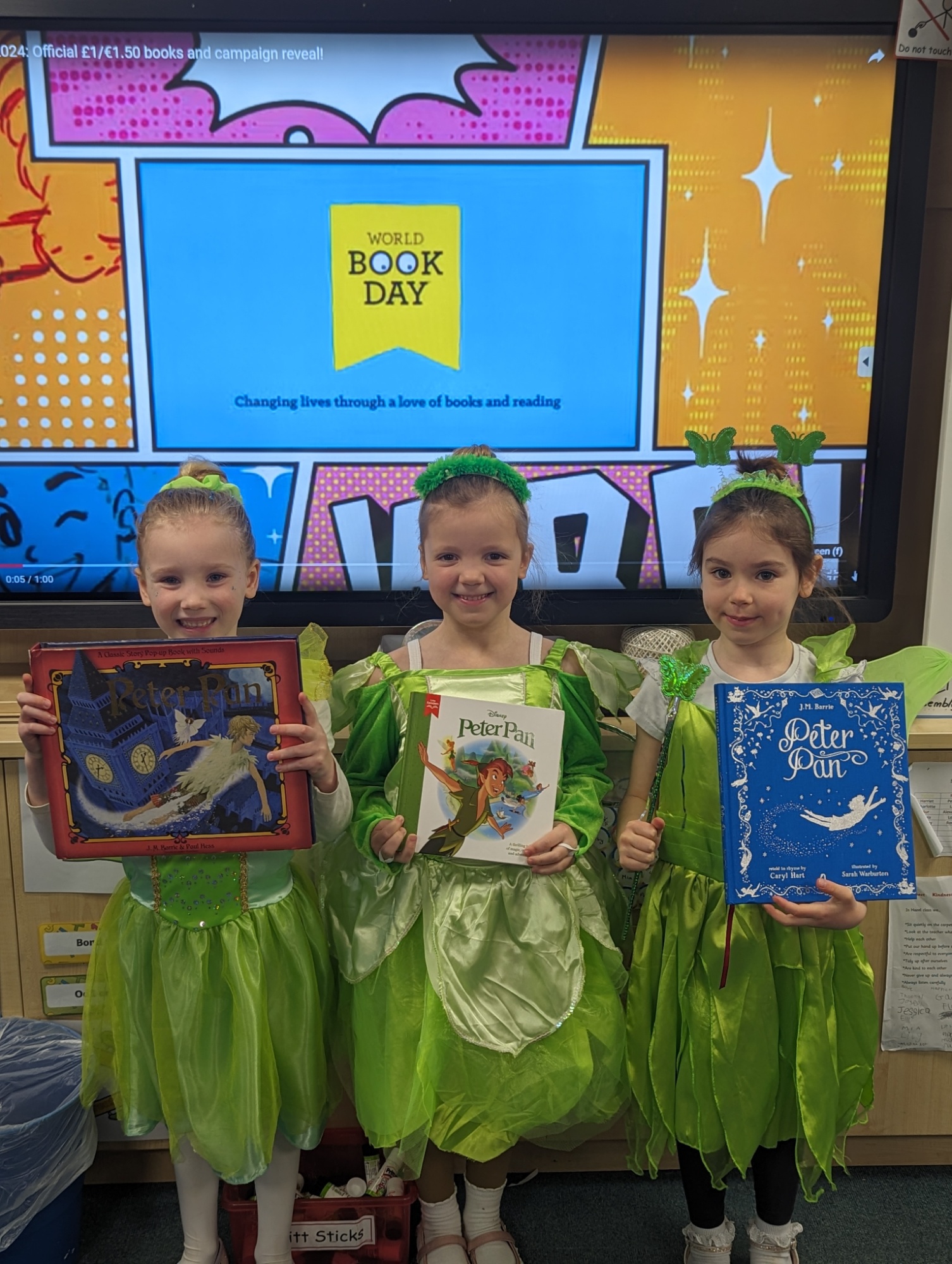
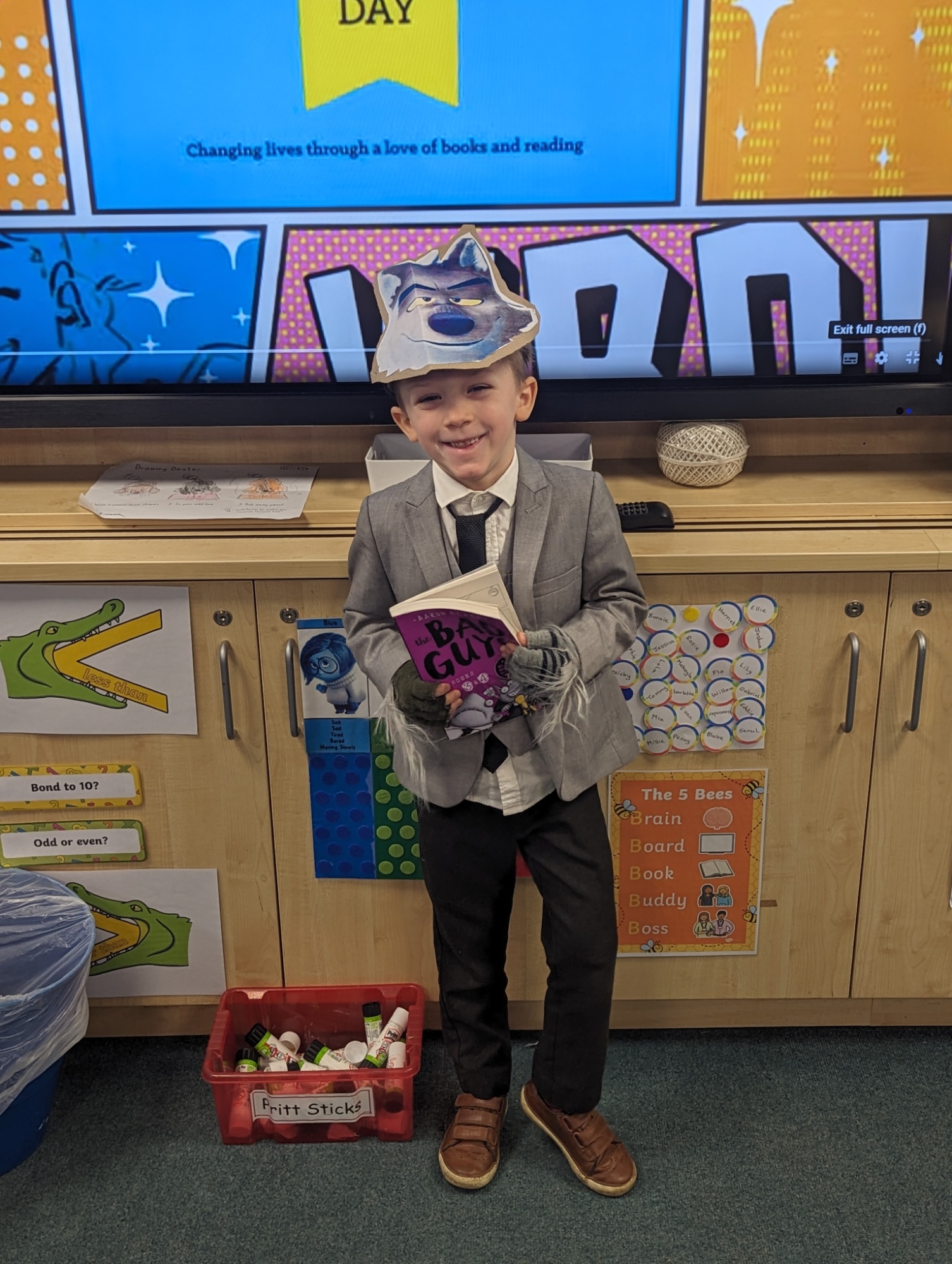
Reading Challenges – We make regular use of reading challenges. We also support the Herts libraries reading challenges. We promote the challenges in school, send home web links to the challenges and celebrate with certificates awarded in assemblies.
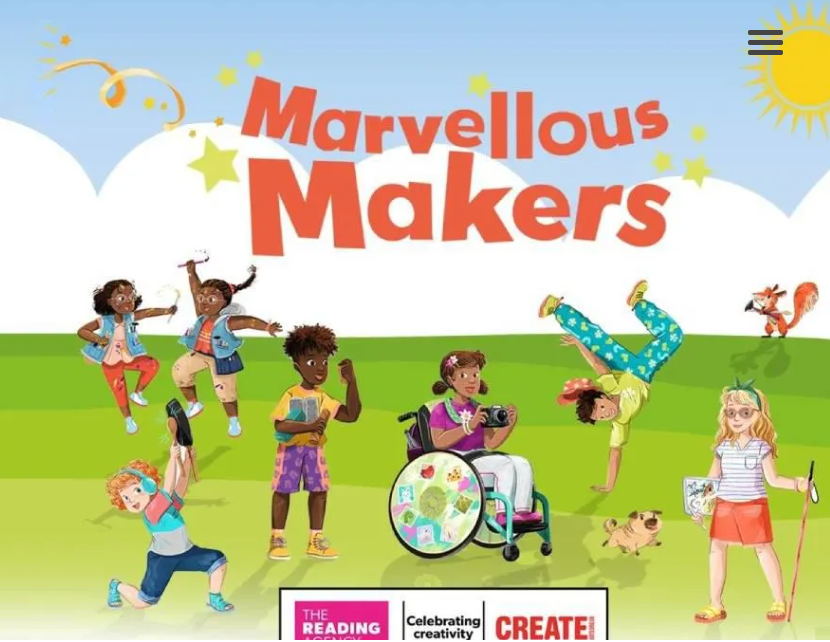
Reading Displays – To further foster our whole school love of reading and promote different authors and genres, we have one display board in keystage 1, one in lower keystage 2 and one in upper keystage 2 which are all changed half termly.
Visiting Authors – We enjoy inviting local authors in to work with our children. Recent projects have included the author – Lucy Plunkett. Lucy brought in her book 'Dexter! The School Dog!' She read the story to the children in all year groups and this led to interesting discussion and pictures about neurodiversity and understanding about how brains are wired. An incredibly rewarding and enjoyable experience for all!
We have also recently had a visit from Elizabeth Barber - author of Stone Arrows. This has led to an increase in the number of children digging up the field to search for flint and a keen interest for archaeology and historical fiction.
Chip Colquhoun visited the week before World Book Day 2025 to hold storytelling workshops with all year groups. Much hilarity ensued with singing, storytelling, actions and audience participation. The children were intrigued to learn that every time they write a story in their own words in English lessons, it could make them millionaires!
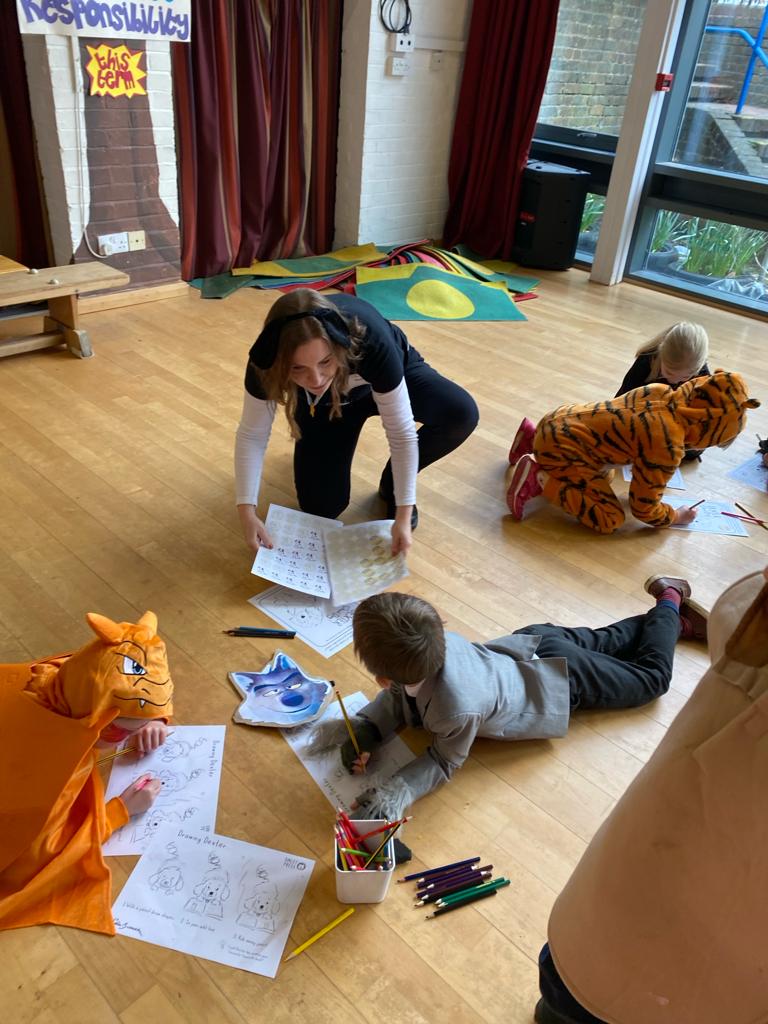

Top 100 books – To further promote reading and encourage children to read a wide range of literature, there is a list of the top 100 books for each year group on the parents' section on this website. We also promote this at our annual Information Evenings.
Diversity in the English curriculum
We believe it is important for children to feel represented within their school community. We can help to address this by including books featuring a range of diverse characters in our English curriculum and in the books we have in our classrooms. We are also in the process of looking at gender stereotypes within books and addressing this issue in class where appropriate. Part of our budget is allocated specifically for a range of diverse books including neurodiversity, gender, sexuality and relationship diversity, mental health, ethnic and cultural representation and challenging gender stereotypes. In addition to this, we have good links with a local independent book shop allowing parents to make donations towards books for our school. The bookshop then adds 10% to the total of donations, giving us extra money to spend.
Our new Diversity Club is made up of Year 5 and 6 children who attend weekly club meetings to discuss the issues that interest them. They are writing and performing assemblies termly to the whole of Keystage 2.
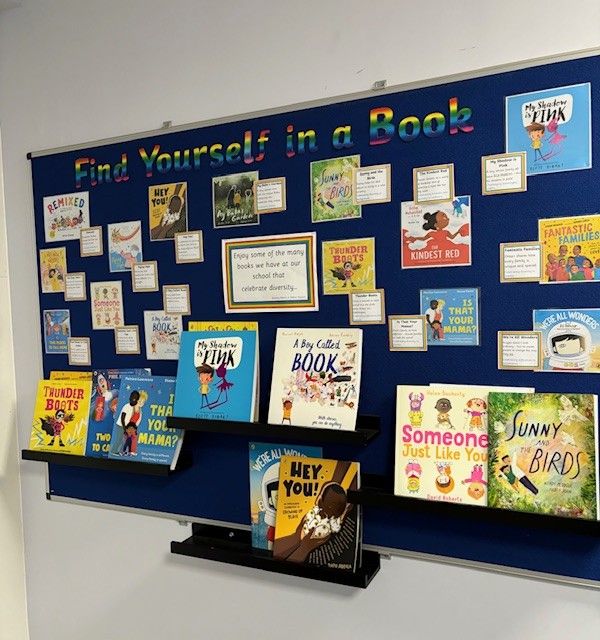
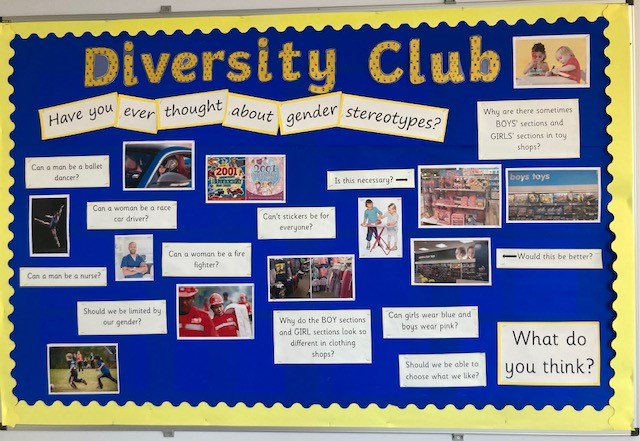
Writing
As our pupils progress through the Key Stages:
- Their knowledge surrounding the purposes of writing increases.
- Children become more self-regulating, skillful and adaptable in their use of different writing processes, including how they plan, draft, revise and edit.
- Children’s ability and skill to proofread, use a dictionary, and use other spell checking devices increases over time. This means fewer errors find their way through to the final write.
- Children learn about the different ways in which we are moved to write and by developing as writers, they can fully engage with society in a variety of ways.
- Through class writing and projects, they learn how to share their knowledge, opinion, imaginative creativity and artistry. They also learn how to influence and to be persuasive, because you either learn to write your own thoughts or opinions, or else are subjected to someone else’s.
- Children are also keen and able to write in personal response to what they are reading.
Children are provided with the tools they need to be successful in their writing: word books in Keystage 1 and personal dictionaries in lower Keystage 2. All classes have access to word grids and Bug Club phoneme mats and all children, as their writing develops, are encouraged to use dictionaries and thesauruses to check or improve their word choice. From Year 1 we are striving to encourage children to draft, edit and improve their own work and, again, as they mature, we often use peer assessment and peer editing as a valuable tool.
We moderate writing using age related expectations termly both within our school in year groups, in adjacent year groups and through local authority events. Again, progress is tracked throughout the school.
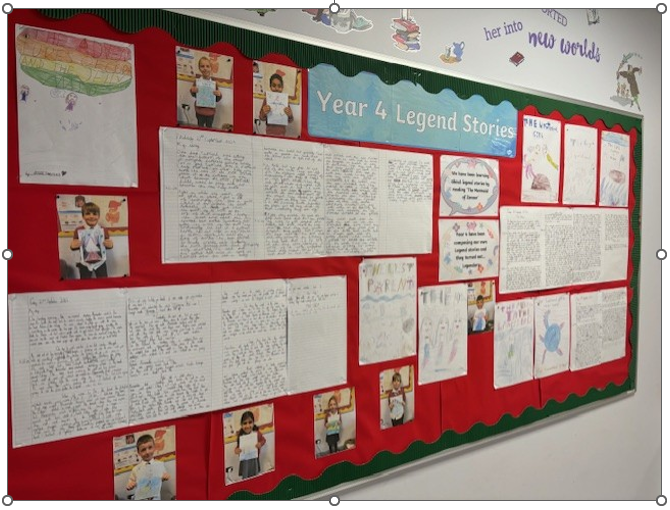
Speaking
The school follows the National Curriculum guidelines for the teaching of speaking and listening. Through Early Years and Keystage 1, we assess speech and language skills and regular 1:1 and small group interventions take place as we know that an unaddressed delay in language skills can lead to underperformance throughout primary school and beyond.
Children are given lots of opportunities to talk, ask and answer questions and present to an audience. This includes presentations as part of project work, discussion, debate, role play and also regular productions, where children are able to perform to a live audience: class assemblies, Christmas performances and Year 6 end of year summer shows.
Impact
The impact on our children is clear: progress and transferable skills. We aim that by the end of KS2 all of our children have made considerable progress from their starting points in EYFS. By the time our children are in upper Key Stage 2, all genres of writing are familiar to them and for some of our children teaching can focus on creativity, writer’s craft, sustained writing and manipulation of grammar and punctuation skills.
Our children also become more confident, fluent readers and they understand the importance of reading for pleasure along with reading for information and knowledge.
As all aspects of English are an integral part of the curriculum, cross curricular writing standards are also good and skills taught in the English lesson are transferred into other subjects; this shows consolidation of skills, progression and a deeper understanding of how and when to use specific grammar, punctuation and grammar objectives.
We hope that as children move on from us to further their education and learning that their creativity, passion for English and high aspirations travel with them and continue to grow and develop as they do.
Children in our school achieve highly in the Phonics Screening check and in the KS1 and KS2 assessments.




The Library
Thanks to the SPA and generous donations from parents, our new library is looking amazing! Children are able to browse, borrow and read a wide variety of books in a child-friendly and calming space. Every class will have a timetabled library session to make the most of this resource. We are hoping to add to it over the coming months, so watch this space! The library is also used as a well-being area during playtimes and lunchtimes, providing a quiet area for those who need it.
